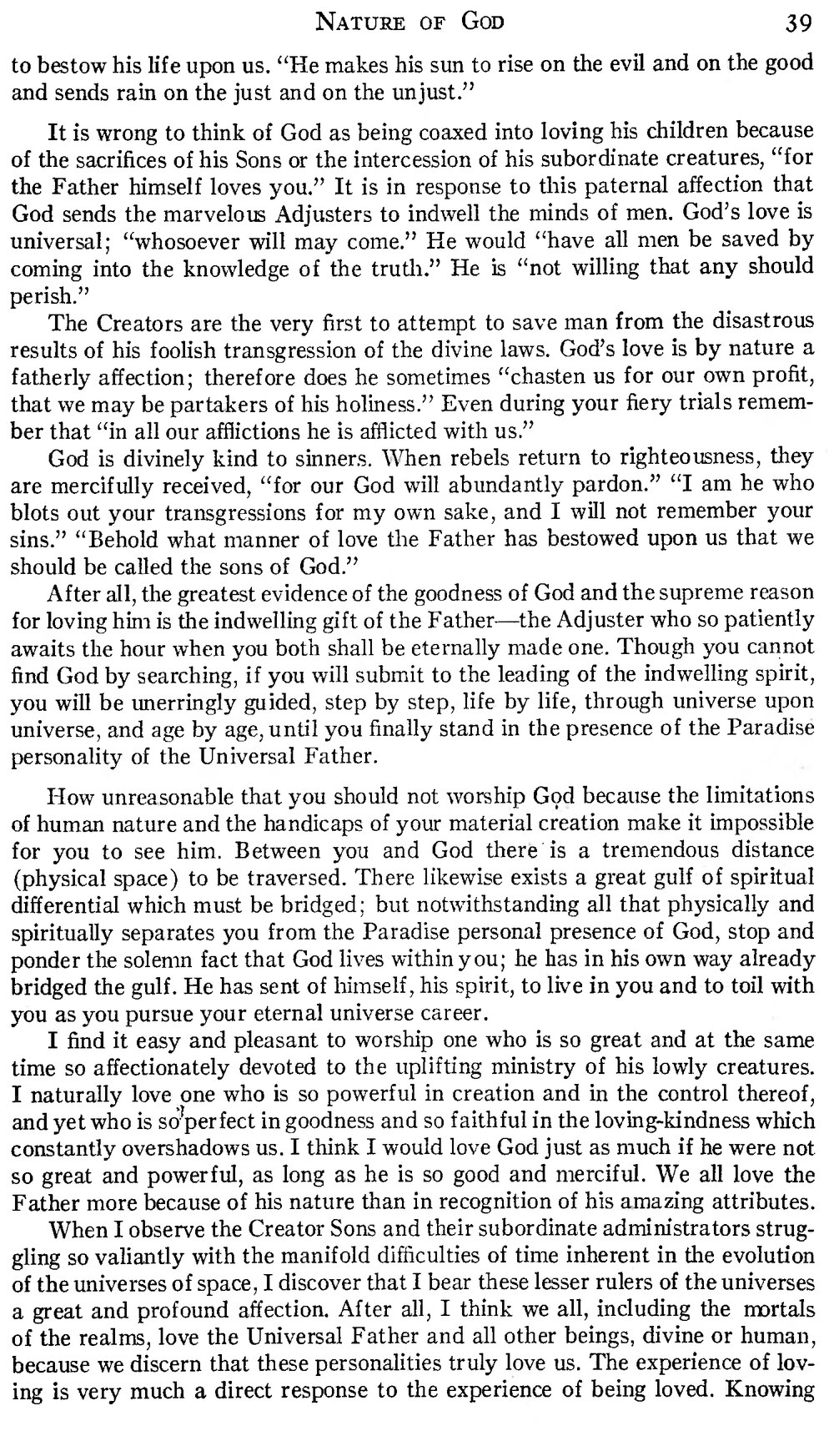to bestow his life upon us. "He makes his sun to rise on the evil and on the good and sends rain on the just and on the unjust."
It is wrong to think of God as being coaxed into loving his children because of the sacrifices of his Sons or the intercession of his subordinate creatures, "for the Father himself loves you." It is in response to this paternal affection that God sends the marvelous Adjusters to indwell the minds of men. God's love is universal; "whosoever will may come." He would "have all men be saved by coming into the knowledge of the truth." He is "not willing that any should perish."
The Creators are the very first to attempt to save man from the disastrous results of his foolish transgression of the divine laws. God's love is by nature a fatherly affection; therefore does he sometimes "chasten us for our own profit, that we may be partakers of his holiness." Even during your fiery trials remember that "in all our afflictions he is afflicted with us."
God is divinely kind to sinners. When rebels return to righteousness, they are mercifully received, "for our God will abundantly pardon." "I am he who blots out your transgressions for my own sake, and I will not remember your sins." "Behold what manner of love the Father has bestowed upon us that we should be called the sons of God."
After all, the greatest evidence of the goodness of God and the supreme reason for loving him is the indwelling gift of the Father—the Adjuster who so patiently awaits the hour when you both shall be eternally made one. Though you cannot find God by searching, if you will submit to the leading of the indwelling spirit, you will be unerringly guided, step by step, life by life, through universe upon universe, and age by age, until you finally stand in the presence of the Paradise personality of the Universal Father.
How unreasonable that you should not worship God because the limitations of human nature and the handicaps of your material creation make it impossible for you to see him. Between you and God there is a tremendous distance (physical space) to be traversed. There likewise exists a great gulf of spiritual differential which must be bridged; but notwithstanding all that physically and spiritually separates you from the Paradise personal presence of God, stop and ponder the solemn fact that God lives within you; he has in his own way already bridged the gulf. He has sent of himself, his spirit, to live in you and to toil with you as you pursue your eternal universe career.
I find it easy and pleasant to worship one who is so great and at the same time so affectionately devoted to the uplifting ministry of his lowly creatures. I naturally love one who is so powerful in creation and in the control thereof, and yet who is so perfect in goodness and so faithful in the loving-kindness which constantly overshadows us. I think I would love God just as much if he were not so great and powerful, as long as he is so good and merciful. We all love the Father more because of his nature than in recognition of his amazing attributes.
When I observe the Creator Sons and their subordinate administrators struggling so valiantly with the manifold difficulties of time inherent in the evolution of the universes of space, I discover that I bear these lesser rulers of the universes a great and profound affection. After all, I think we all, including the mortals of the realms, love the Universal Father and all other beings, divine or human, because we discern that these personalities truly love us. The experience of loving is very much a direct response to the experience of being loved. Knowing

